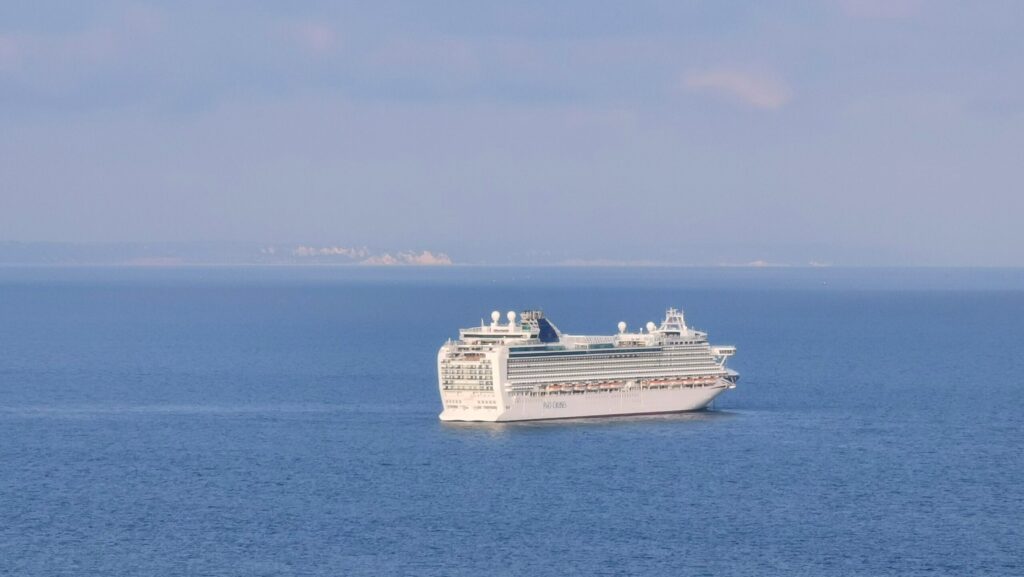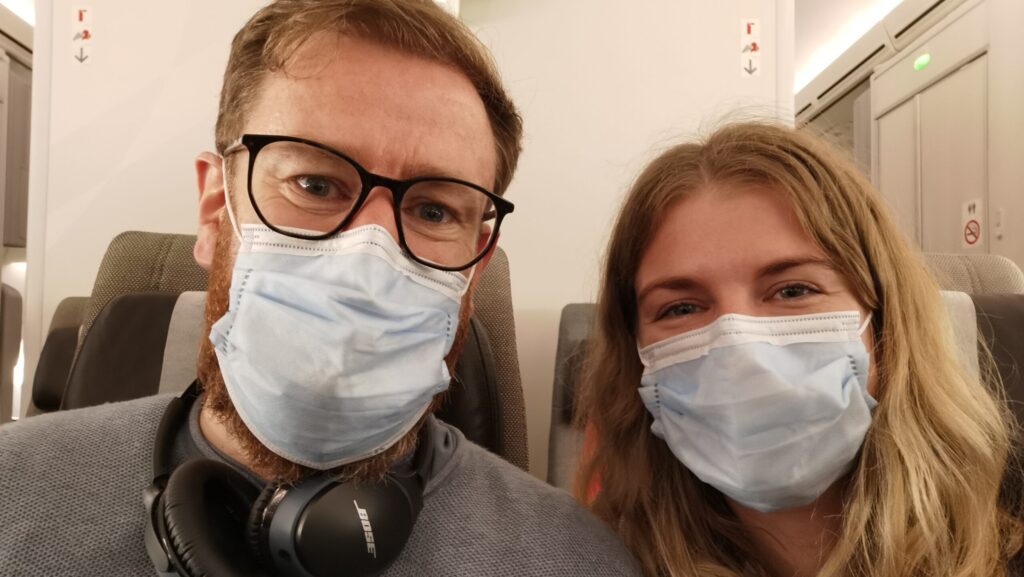Travel insurance is one of the most important things you will purchase when travelling abroad. I have lost count of the number of times I have had to use my travel insurance when I have been away. I have claimed for lost luggage, a stolen passport, a broken phone, cancelled holidays and several trips to the doctors, and each time I was so glad that I had travel insurance otherwise I would have been in big trouble.
If you are one of the lucky ones who has been abroad and never had to use it, then you may often think what is the point in travel insurance, and possibly even considering risking going away without it. To that I would say DON’T DO IT!!!! It is just not worth the risk to travel without insurance.
It can be a minefield though when trying to decide on what insurance to buy. Which company should you use, what policy type is the best and should pay for all of the optional extras. The good news is that in the UK by law every person selling insurance has to have been properly trained to sell it and has to be upfront about what the policy covers before you buy it. They also have to give you a ‘cooling off’ period of 14 days, meaning that if after you buy it you decide it’s not for you, or you have found better coverage elsewhere they have to give you a full refund.
To simplify the process, this post breaks down what things to consider when buying travel insurance and helps you understand some of the complex language used.*
Travel insurance glossary
- Underwriter – An underwriter is the company that is actually behind your travel insurance. You will often buy insurance from one company e.g. a travel agent, but the insurance policy will be underwritten by a different company. They are the ones that basically have created all the legal stuff to do with the insurance.
- Cooling off period – The 14 day period after you purchase a travel insurance policy where you are allowed to cancel for a full refund.
- Curtailment – When a trip is cut short and you have to return home earlier than expected
- IPID – Stands for an Insurance Product Information Document. It is a document which shows an overview of the policy you will be buying. It should include things such as what’s included and excluded from coverage and should be showed to you before purchase so you can check that it’s the right policy for you.
- Policy documents – These are the documents you receive after purchase which shows everything to do with your travel insurance policy including what’s included and excluded and how you can make a claim.
- Policy schedule – A policy schedule is a document you receive after buying travel insurance which contains all the essential information about your policy. It contains your policy number, tells you the start and end date of your coverage, what countries you are covered for and any extra protection you have paid for.
- Excess – An excess is the amount of money you have to pay to the insurance company if you need to make a claim. Often when buying travel insurance, you can choose the amount of excess you will pay. Usually the less excess you pay, the higher the price of the insurance policy will be.
- Optional extras – This is extra coverage you can pay for an additional fee. Optional extras can include golf cover, cruise insurance, gadget coverage and winter sports.

What to consider when buying travel insurance
– Where are you going?
Travel insurance coverage is usually broken down into 3 different areas of the world (if you are purchasing it in the UK). These are ‘Europe’, ‘Worldwide excluding North America’ and ‘Worldwide’. Before you buy, check the fine print to see what countries each one covers as often they may include or exclude some countries. For example, Europe policies often include some countries in Northern Africa such as Morocco and Tunisia.
– Length of trip
Do you plan on going on one short trip or multiple trips? Are you planning on backpacking around the world for the next few years. Depending on the length and number of trips will determine which is the best policy type for you.
Travel insurance policies usually come in 3 different options: ‘Single trip’, Annual Multitrip’ and ‘Backpacker/Long Stay’. Single trip is for those who plan on going on one short holiday and only want coverage for that trip. Most travel insurance companies will put a limit on the length of trip which is allowed on a single policy. This is usually around 30 days but can vary depending on the policy.
If you are going on multiple short trips over the next 12 months, then an annual multitrip policy would be the most cost effective. But if you are planning on taking a gap year or two and going backpacking, then you will need specific insurance for that. This is normally called something like Backpackers insurance or long tem insurance. Again you will have to double check the fine print of the policy to see how long you are allowed to be away.
– Level of coverage
Most travel insurance companies will offer different levels of protection for different prices. These levels may be called something like ‘Gold’, ‘Silver’ and ‘Bronze’. Before you purchase it, you can check what is included in each level to make sure it’s the right fit for your trip. Often the main thing that will change on the higher policies is the amount of money you will be awarded if you need to claim for something.
– Excess
An excess is the amount of money you have to pay should you need to make a claim. Often you can alter the amount of excess you pay, but usually by decreasing the excess it increases the cost of the policy. Some insurance companies will just deduct the excess from the amount of money they will pay out to you, but sometimes that money is required up front, so make sure you know that you can pay it if the need arises.
– Medical
Costs of medical treatment in another country is the biggest reason to buy travel insurance. If you were to get injured or sick in another country, then treatment can often run into thousands, and sometimes millions of pounds. Make sure when buying travel insurance that it will cover for every eventuality should you fall ill, get injured or if you should sadly die. Think about the fact that you may require medication, hospitalisation, air ambulances, or operations.
– Pre-existing medical condition
Following on from the above point, you will need to declare to the insurance company if you have any pre-existing medical conditions before you purchase the travel insurance policy. These are medical conditions which you currently have or have had previously and any periods where you have had operations or hospitalisation. The types of conditions you may be required to declare include cancer, diabetes, heart conditions and pregnancy, but if in doubt, declare all conditions past and present to the insurance company.
Sometimes you will have to pay more for your insurance if you declare a condition, but failure to declare it will mean that you won’t be covered for that condition should you fall ill abroad. This can be a costly mistake. Unfortunately, some conditions won’t be covered by mainstream insurance companies and you may need to find a specialist insurance company who is happy to provide cover for your condition.
– Covid
Although Covid is a few years behind us now and the world has pretty much gone back to normal, there are maybe still some insurance companies which don’t cover you if you have to cancel or isolate due to Covid. Best to double check that your insurance company will cover you for any incidents related to Covid.

– Sports and activities
This is a big one which caught me out when I first started travelling as I didn’t even consider that some of the activities I would be participating in wouldn’t be covered if something went wrong. Some of the major extreme sports such as bungee jumping may not be covered, therefore if you get injured while participating in these sports your medical bills will not be paid.
Often travel insurance companies will cover a lot of the basics such as hiking, pony trekking, snorkelling and ball sports, but to make sure double check their policy wording documents and they should have a list of sports which are included or excluded. The two main sports which you usually have to pay extra cover for is a golfing holiday or if you are undertaking winter sports. Also if you plan on undertaking an extreme challenge such as climbing Everest, then the likelihood is that you will have to purchase specialist insurance.
– Working abroad
If you plan on working or volunteering abroad, especially if its doing something high risk like working with diseased animals, then you may need to double check with your insurance company whether you will be covered for any work you undertake.
– Will it cover for any eventuality?
Some insurance companies won’t cover for certain things like naturally disasters and acts of terrorism. Make sure to double check the fine print to see if everything is covered. With some companies you may be required to pay an extra premium to get this coverage included.
– How can you make an insurance claim when abroad
Does your insurance company have an easy way for you to get in touch with them should you need assistance or medical help. Most insurance companies should have some kind of 24 hour hotline you can ring for assistance, so make sure yours does.

Ways you can void your travel insurance
Even if you have bought travel insurance and checked that it covers you for everything, there are still ways that your travel insurance policy may be voided.
- Travelling against FCDO advice – The Foreign, Commonwealth and Development Office (FCDO) is a section of the UK government which offers travel advice to UK citizens about every country in the world. It also states whether a country is safe to travel to of not. If the FCDO has advised against travel to a certain country but you decide to go anyway and something happens to you, then your travel insurance company may not pay out as you have travelled against the governments recommended advice.
- Not declaring a medical condition – As stated before, you need to declare all medical conditions to your insurance company prior to purchase. If you don’t and you get sick and need medical treatment for that condition, then the insurance company can refuse to pay out as you didn’t declare your existing condition.
- Lying to the insurance company – If you have lied on the insurance form or committed any kind of fraud then the insurance company are unlikely to pay out.
- Doing something reckless or illegal – If you are injured because you have done something stupid like jumping off a bridge or something illegal like drunk driving, then chances are that you will void your insurance policy, and they won’t pay out for any injuries resulting from that act.

Final tips
I have used so many travel insurance companies over the years and don’t really have a specific recommendation for who to go with, as it’s all dependant on what insurance fits your needs. However, a good place to start would be to shop around using a comparison website such as Go Compare, Compare the Market or Money Supermarket. You could also ask a travel agent for recommendations but be careful as they are often being paid to promote a certain company which may not be the right fit for you.
One final tip would be to always buy your travel insurance as close to when you book your holiday as possible, because if the company you book with goes bankrupt the next day, or your flight get cancelled, then you are fully covered from the date you buy your policy. Don’t leave it until you are boarding the plane, thinking that you only need it when you are away, travel insurance is there to also cover you should anything happen to your holiday before you leave.
(*Disclaimer: I am not a trained travel insurance advisor. All information is based off my own opinion and experience of buying travel insurance. If in doubt, please contact a fully trained insurance advisor and always check the policy wording to make sure it is a right fit for your circumstances. All information is based on buying travel insurance in the UK)


